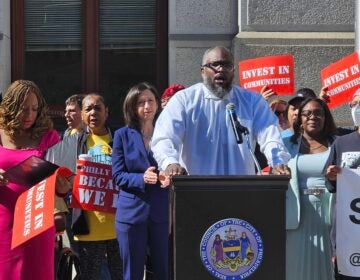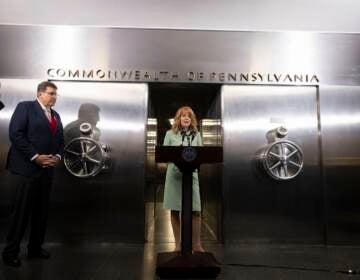Q&A with Joe DeFelice, the HUD regional administrator from Mayfair
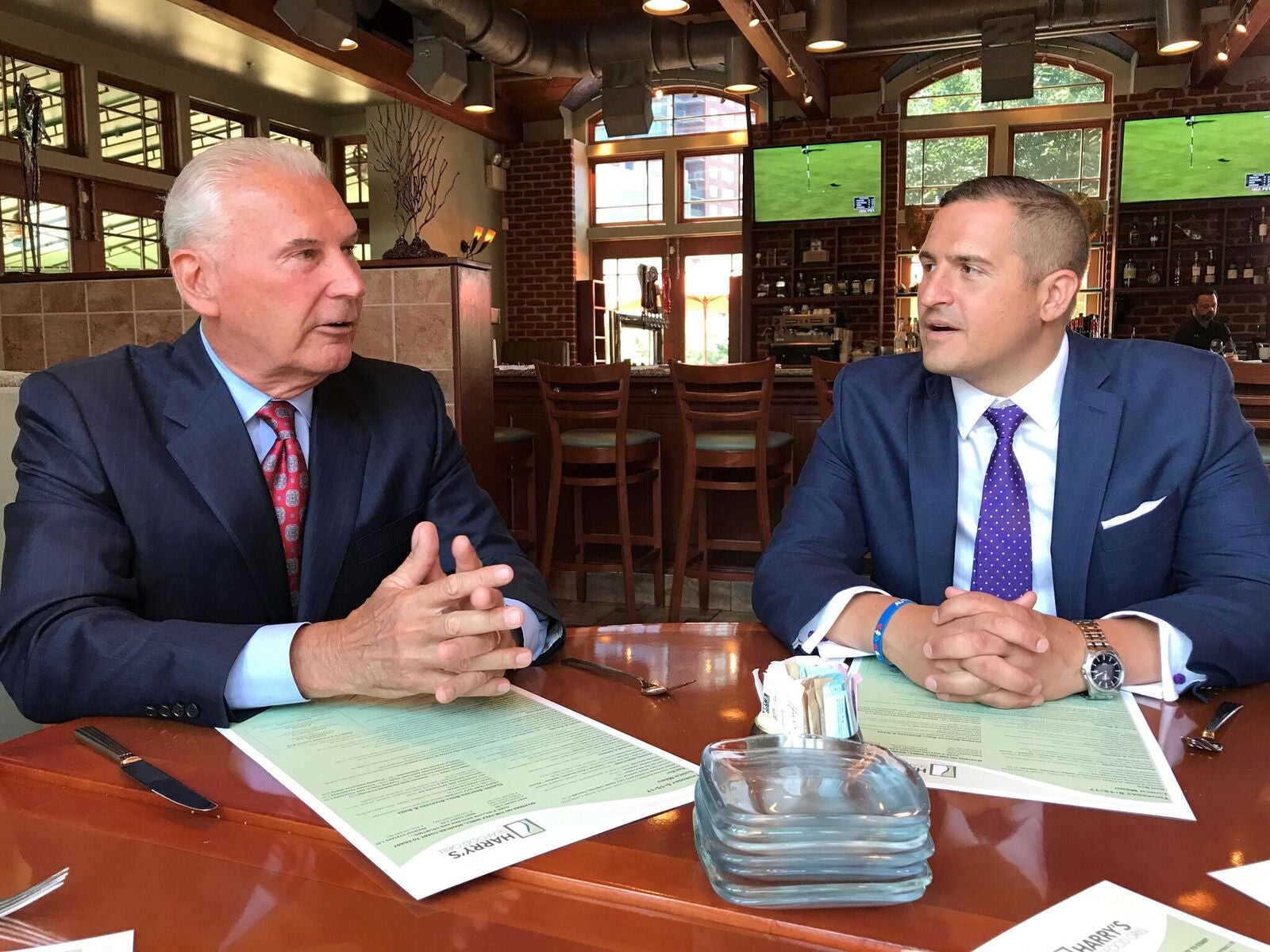
When former Philadelphia Republican Party chair Joe DeFelice became the HUD regional administrator for the Mid-Atlantic region, it raised some eyebrows among skeptics. What does Trump’s “hype man” in Philadelphia know about housing?
But political operatives like DeFelice, as opposed to policy experts, are standard appointees for these local leadership positions. HUD regional administrators are the liaisons between Washington headquarters and the local politicians who are trying to wrangle regulations and funding from D.C. The regional administration are among the most political jobs in the agency, after the Secretary and Deputy Secretary at headquarters, so former politicians are often tapped for the role. Mayors, county executives, state legislators, or city council members are all usual candidates.
DeFelice never held elected office, but he’s held top jobs at the Mayfair Civic Association and the Mayfair Community Development Corporation,in addition to lengthy tenure in the leadership of the Philadelphia Republican Party. Like most CDCs, DeFelice’s organization made use of Community Development Block Grants (CDBG) and other funding streams from HUD to improve storefronts and develop housing in Mayfair.
Speaking on condition of anonymity, the head of one big city housing authority outside DeFelice’s Region III said he seems like a standard choice for the position. By all accounts, the 250 rank-and-file HUD employees in Philadelphia met his appointment with equanimity. That’s in contrast to the reaction to Ben Carson’s appointment as secretary of the entire agency, or to their counterparts in Fort Worth — where the Region VI administration made her name fretting about Sharia law — or New York, where Eric Trump’s wedding planner took over the Region II offices.
Region III includes West Virginia, Virginia, Maryland, Delaware, Washington D.C., and all of Pennsylvania. Since taking over as Region III administrator, DeFelice has spent a lot of time on the road meeting with mayors in his expansive jurisdiction. PlanPhilly caught up with him after Secretary Ben Carson’s visit to Philadelphia and before he embarked upon a counterclockwise tour through Pennsylvania to tour the housing authorities he hadn’t yet visited.
This interview has been edited and condensed.
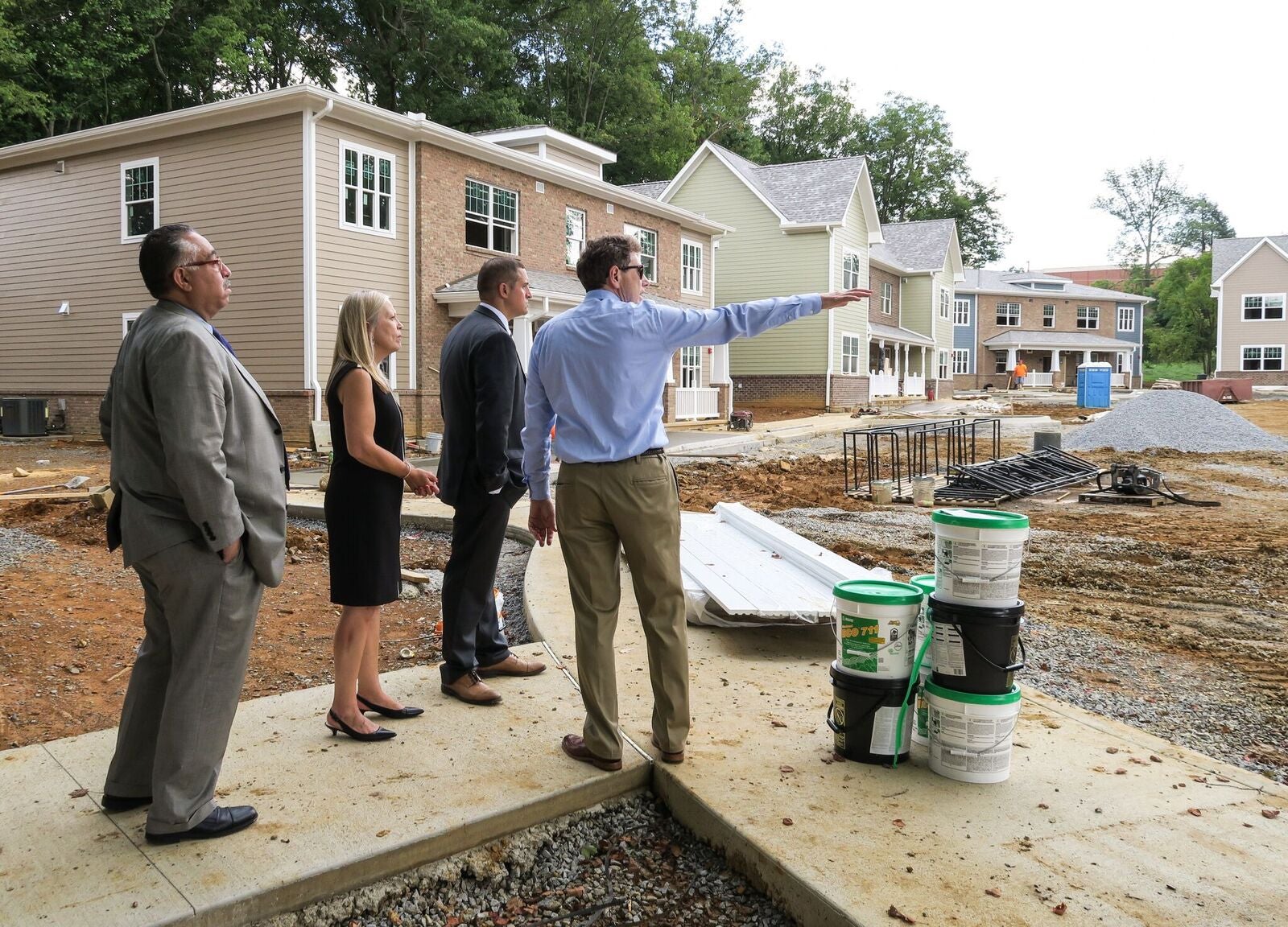
PP: You are at the head of an enormous jurisdiction with a diverse array of housing authorities that don’t look very much like Philly. What’s the day-to-day job like?
You have a nice little taste of America contained in this region: Mountains, coastal regions, rural areas, industrial areas, booming cities, dying cities. As you start getting into Western Pennsylvania, West Virginia, southwestern Virginia, it’s more akin to the Midwest than the South.
I did a trip to southwestern Virginia a few weeks ago, where we went to the Birthplace of Country Music. We stood in the middle of the street with one foot in Virginia and one foot in Tennessee. They had a festival going on where you get your photo taken with the Dale Earnhardt Jr. look-alike. When we were going through the museum they had a whole wing devoted to a song called the unbroken circle. [Reporter’s note: DeFelice is probably referring to “Will The Circle Be Unbroken?”] I’ve never heard this song before and everybody in the place is singing it. It seemed like a big deal. [They] looked flabbergasted I’d never heard of it.
I’m not really a desk person. I get antsy. I like to get out there and find out what’s going on. This is new to me, I want to go out and I want to talk to people in these communities who are doing this work and get ideas from them. We don’t know everything. Headquarters obviously doesn’t know everything. They need to hear from the field. Secretary Carson needs to know what I saw in Dunleith, Delaware or Clendenin, West Virginia. These little towns are never going to get on the secretary’s radar screen unless I tell him about them.
PP: As I understand it, the regional director jobs are some of HUD’s most politically-oriented positions. Why was that appealing to you?
I’ve been politically active for 20 years. I ran the city’s Republican party, I was a ward leader, I was active on the neighborhood level. I have a passion for Philadelphia and a passion for cities and, frankly, my political background helps me.
In Pennsylvania, I know a lot of these congressmen and senators. I’ve had to work with a lot of Democrats over the years. I know Congressman Brady. I know Congressman Boyle and Congressman Evans. I’ve been working with [State Rep.] John Taylor and [State Rep.] Martina White for years. I’ve met with Mayor Kenney twice this week, Mayor Pugh of Baltimore, an hour-long meeting with Mayor Peduto out in Pittsburgh. Probably one of my most memorable visits so far was that I spent a good five hours with Mayor Fetterman. Turned out we both played football at Albright College, so there was a natural connection there. We spent hours touring Braddock. Sitting down with these mayors and having these conversations, helping cut through some of that red tape.
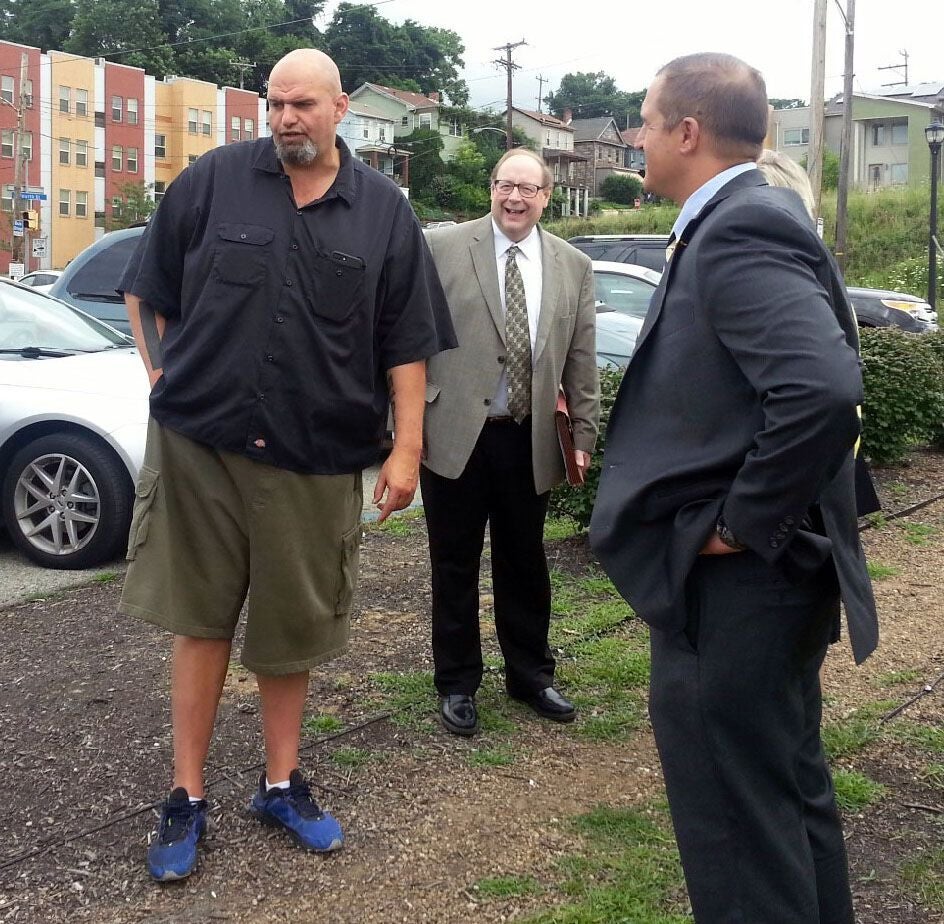
PP: The housing affordability crisis is an issue that is really too big for one city to address on its own. Only the federal government has the wherewithal and resources necessary, so how do you hope to maximize HUD’s ability given the very constrained resources housing authorities are working with?
I think one thing HUD should do is further public-private partnerships, working with developers to try to find ways to get more dollars in. We’ve told developers that if they can provide affordable housing, and meet the needs of the high-end buyers, we can work to find a way to get more housing in there.
There’s RAD [Rental Assistance Demonstration], where we can take public housing and potentially have private investors come in and improve the public housing stock. We are working with Sister Mary Scullion and Project Home and the Philadelphia Housing Authority on a RAD deal at 8th and Berks. It’s a vacant lot and now there will be 25 new affordable units that weren’t there previously. We can continue to get RAD deals like that so private investors can come in to rehab our properties so we can get more funds to do other things.
PP: I’ve written about RAD a few times over the years, and I know some housing groups had concerns about bringing private actors into public housing rather than just having Congress appropriate the necessary funds to maintain the buildings.
That’s one of the complaints we get, when I’m out in the field. It’s similar to public education. Education and housing, people want them to be a right. The same people who would be against privatizing public education look at this and say you are trying to privatize public housing. That’s not the case.
What we are trying to do is create partnerships. America, not to be corny, is an entrepreneurial country. We have an opportunity to leverage our properties with private dollars. A lot of these RAD projects are still being run by the Philadelphia Housing Authority. We may move them from one pot to another, but they are still being run by the same people. This just allows them to create more opportunities elsewhere.
PP: Are you putting safeguards in place to ensure they remain deeply affordable into the future?
The people who are doing this are still non-profits for the most part. This isn’t a situation where we are turning over properties to fly-by-night operators. They are proven people who’ve worked with HUD and understand our standards.
PP: Speaking of public-private partnerships, let’s talk about the Sharswood project. What’s the current state of the funding for Sharswood. There was anxiety about the project’s future when those big budget cuts to HUD were proposed earlier this year.
So far, the Sharswood funding is safe. They got the $500,000 Choice Neighborhoods planning grant. We fund the Philadelphia Housing Authority. I think 90 percent of their budget comes from us.
And we also let them become a Moving To Work agency, which allows them local control. We are looking to decentralize, take things out of headquarters, out of Washington, and putting power back with local entities.
PP: What people were concerned with was that because 93 percent of the housing authority’s funding comes from HUD, which big budget cuts were proposed to.
Regardless of what the final spending levels turn out to be, we’ll be prepared to meet the challenges. Look, Secretary Carson wants to respect the taxpayer. He wants to make sure the taxpayer’s dollars are protected, but he also wants to treat people with dignity in the process.
Right now, we already have money in the pipe. The money from ’17 is being spent. There are proposed budgets being bandied around and I can’t get into hypotheticals about what’s going to happen. We have to deal with the present.
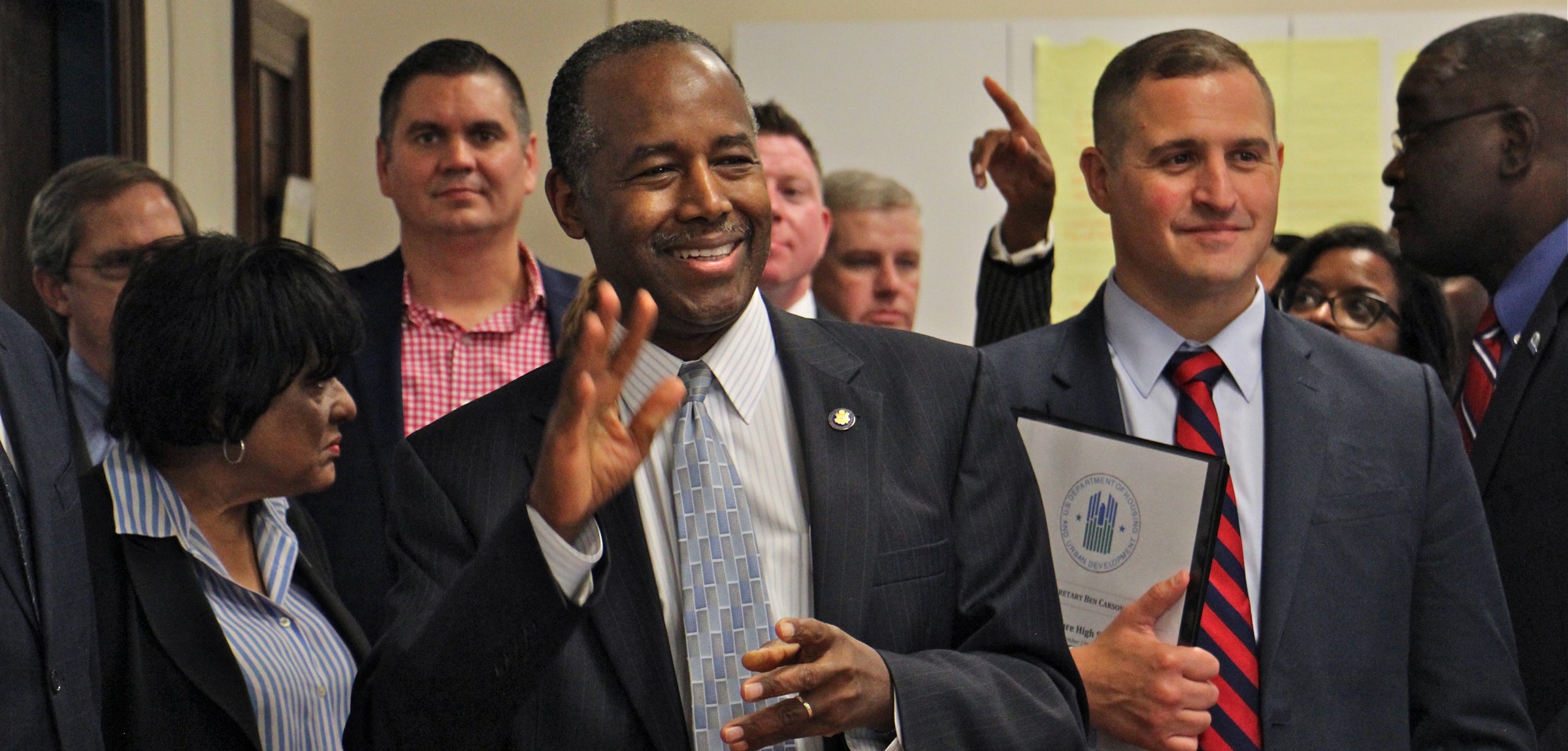
PP: Last year Philadelphia completed its Affirmatively Furthering Fair Housing process, which is meant to encourage integration. [Reporter’s note: As a presidential candidate, HUD Secretary Ben Carson denounced this program as “experimenting with failed socialism.”] How is your office handling that regulation process in other jurisdictions?
Every time I send out[annual community assessment]letters, we always mention AFFH in there to say “congrats here’s the work you’ve done, however we’ve noticed areas where you could use improvement.”
Secretary Carson has made it a point in his administration that we overregulate housing authorities and overregulate HUD. He thinks we should shrink our regulations and allow our authorities and municipalities to operate a little more freely. This way we aren’t throwing away dollars on rules and regulations and can put them to work in the field.
PP: That includes AFFH and maybe deemphasizing that?
It includes every HUD program across the board. We are looking at the level of overregulation. We constantly have different regulations and sometimes when you look at the training manual it’s four inches thick. He’d like it to be an inch thick.
PP: Is the Philadelphia experience with AFFH—
Philadelphia has put forward one of the better ones, to my understanding. Although you have to give me a little leeway here, because I’m still pretty new. But with respect to Philadelphia, they created the gold standard when it came to their plan to address these issues. They had a lot of public engagement. That’s what you really need to see. You need to talk with the people in these communities rather than just looking at data.
PP: Secretary Carson talks a lot about building communities, not just housing. Having housing authorities emphasize education, job training, health care. But this is a conversation in the context of budgetary austerity. Isn’t that just asking people to do more with less?
Are you familiar with Section 3? It allows for work opportunities for residents and tenants in low income neighborhoods. When you are doing Sharswood, 30 percent of the workforce building those properties should be from around there, not trucked in from South Jersey or Northeast or South Philly. They should come from those neighborhoods and from tenants already in housing.
The mindset is we don’t look at public housing as generational, which it’s become. If we can train people to work not just building, but administrative work, secretarial work, janitorial work, landscaping work. We are paying someone to do those jobs anyway. Why not pay the people who live in those communities and they can move out of public housing and free up more spaces for those 80,000 on the waiting list? We can help build that community while lowering the overhead we have at HUD.
PP: Do you think efficiencies like that can make up for any potential cuts?
Yes. We are also going to look at how we spend the money. In the past, we have spent money on a lot of things that weren’t necessarily put forth the way it was supposed to be. It wasn’t spent properly, we want to tighten that up. We can’t allow for fraud, waste, and corruption. The mindset would be to look at the money, see where it’s going, and find a way to streamline it.
PP: But only one-fourth of the people eligible for housing assistance are getting it. Three-fourths are not because we aren’t funding the programs at high enough levels to get assistance to everyone who needs it.
I’ve read the press releases and the tweets. Look, right now we just have a proposed budget. But we are just going to need to make sure the money is spent efficiently and effectively going forward. I’m not being cute when I say that. I’m just being honest with you. Our goal is to get more people out so we can get more people in.
WHYY is your source for fact-based, in-depth journalism and information. As a nonprofit organization, we rely on financial support from readers like you. Please give today.





